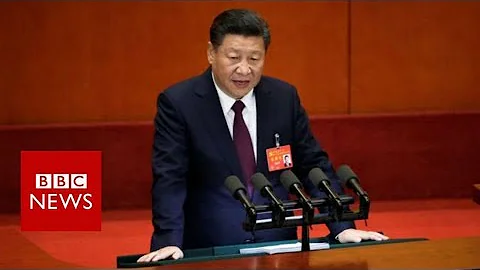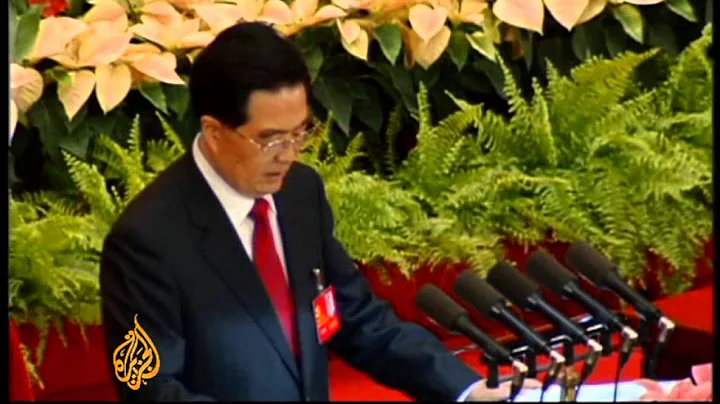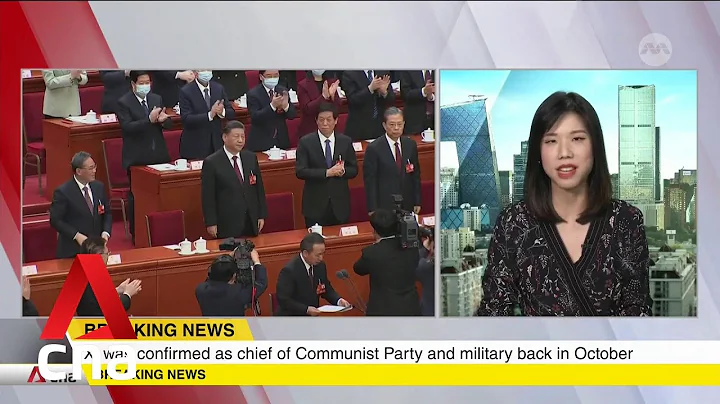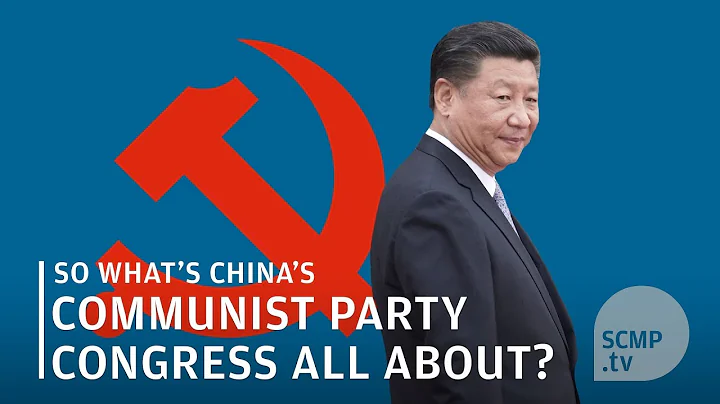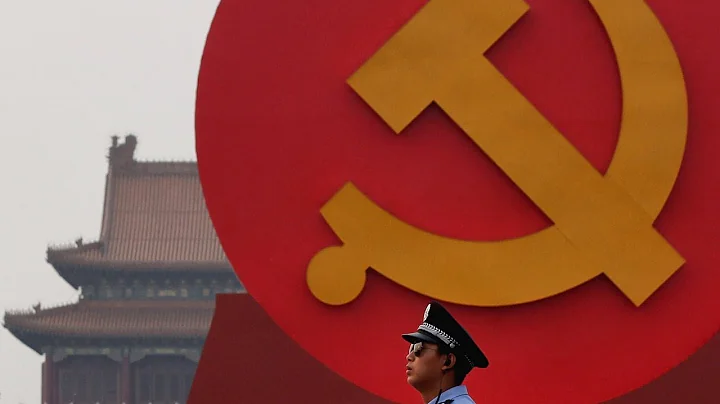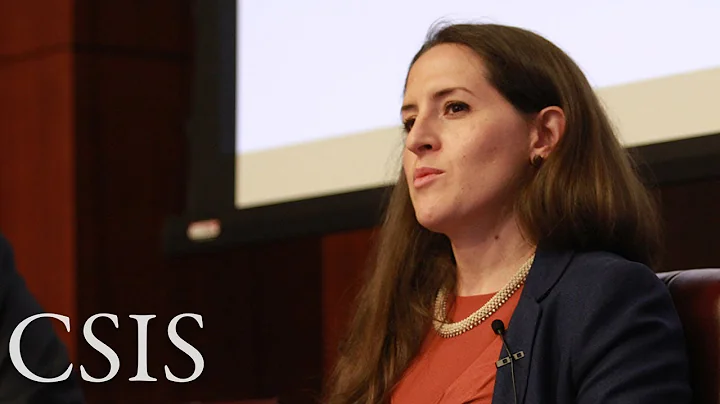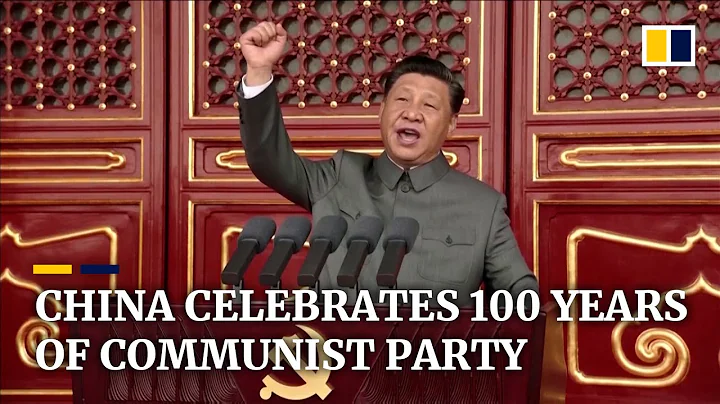In April 1969, at the Ninth National Congress of the Communist Party of China, Chairman Mao suddenly asked Zhou Enlai next to him:
"Have you seen Comrade Ji Dengkui? He is about to speak."
Zhou Enlai glanced at the representative seats in front and said:
"Chairman , Comrade Ji Dengkui, is sitting below! "

Picture | Ji Dengkui
At this time, Ji Dengkui stood up from his seat and strode to the podium. When he passed Chairman Mao's seat, the Chairman smiled slightly and said:
"Please speak. !"
Then, the chairman stood up and announced to all the delegates:
"He is Comrade Ji Dengkui, who is from Shanxi and has been working in Henan. He is an old friend of mine!"
All the representatives at the meeting opened their mouths. They did not expect one. The little-known comrade turned out to be an old friend of Chairman Mao, and the Chairman personally introduced him.
At the meeting, Chairman Mao elected Ji Dengkui as a member of the Ninth Central Committee.
At the First Plenary Session of the Ninth Central Committee held later, on Chairman Mao's proposal, he was elected as an alternate member of the Political Bureau of the CPC Central Committee.
Why did Ji Dengkui become Chairman Mao’s old friend?
This story has to start from 1951.
1. The first meeting between Ji Dengkui and Chairman Mao
The first meeting between Ji Dengkui and Chairman Mao was in the spring of 1951, in Xuchang, Henan.
Chairman Mao had unique feelings for the small town of Xuchang.
In the first year of Jian'an (196), Cao Cao took Emperor Xian of the Han Dynasty to Xuchang, and designated it as the capital of the late Eastern Han Dynasty. At that time, it was called html Xudu. It was here that Cao Cao made great achievements. Chairman Mao admired Cao Cao's cultural and martial arts very much, so he had a unique emotion for Xuchang.
In the early days of the founding of the People's Republic of China, Chairman Mao visited the south several times. Every time the train passed by Xuchang, he would come down to listen to reports from Xuchang government staff and give some instructions. He also personally inspected Xiangxian, Changge and other places below Xuchang.
In the spring of 1951, Chairman Mao took a train south along the Beijing-Guangzhou Line . When passing through Xuchang, he ordered the train to stop, saying that he wanted to learn about the party building and propaganda work of the local city and county.
At first, Chairman Mao asked Lu Xianwen, secretary of the Xuchang Prefectural Committee, to report on the work, but his speech was ambiguous and stumbling, and he did not give an answer that was satisfactory to Chairman Mao.
The chairman thought he was too nervous, so he asked him jokingly:
"Don't you have a place called Shangcai County in Xuchang? Then there should be a Xiacai County!"
Lu Xian Wen became even more nervous, and he replied tremblingly:
"Chairman, I am not fully prepared and don't know Xiacai County."
"Your Xinyang , the Confucian Temple where Song Shijie complained is still there!"

Picture | Chairman Mao
"Chairman, I am not ready, I don't know."
"Okay, let's start talking about work."
Lu Xianwen talked from beginning to end. In the past, sweet potatoes could only be steamed and eaten, but now they can be made into steamed buns, steamed buns, and steamed buns. Making dumplings...
Chairman Mao was not interested and said:
"You are just a stupid secretary! Call your deputy secretary over."
At that time, Ji Dengkui served as deputy secretary of the Xuchang Prefectural Committee and Minister of Propaganda, reporting work to Chairman Mao The task should have been completed by him, but Lu Xianwen got ahead of him and wanted to show off in front of Chairman Mao, but he did not expect that he would be self-defeating and embarrassed.
Ji Dengkui was taken into the carriage where Chairman Mao was by the staff, and had a close conversation with the Chairman for the first time. He would lie if he said he was not nervous.
He reported his family name to the Chairman:
"Hello, Chairman Mao, my name is Ji Dengkui."
Chairman Mao looked him up and down and saw that he was not very old, so he casually asked:
"How old is this young man? He is not 30 years old, right?"
Ji Dengkui replied:
"No, Chairman, there are still two years to go."
"I am 58 years old this year, and I will be an old man in my sixties in two years. You are not even in your thirties yet!"
"Chairman looks good. You don't look like someone who is almost 60 years old. "
" You young man can talk."
"Thank you, Chairman, for your compliment! "
" I almost forgot about the business. I asked you to get on the train. The main reason is to hear your report on the situation here. "
" Chairman, our Xuchang is located in the middle of Henan Province with flat terrain. It is a large agricultural city rich in wheat , corn and other crops. "
"I have eaten the flour you produce. "
" In terms of history, Xuchang was once the capital of the Eastern Han Dynasty. There are many historical celebrities and cultural monuments, such as Cao Cao, Xu You, etc., all lived in Xuchang. "
" Well, you continue. "
"In terms of resources and products, Xuchang is rich in coal and iron ore resources..."
"Young man, it seems you have put in a lot of effort! Thank you for your hard work! "
" No, serving the people, this is what it should be! "
Next, Ji Dengkui introduced to the chairman the experience of propaganda work and close contact with the masses in Xuchang area. He spoke with a Shanxi accent and a bit of Henan flavor, but he was very fluent.
He had a speech prepared with him, but he never had it I read it and found that when talking about some specific figures and examples, he would slow down his speech, deliberately letting the chairman hear it more clearly.
Ji Dengkui didn’t drink a sip of water during this report. Ji Dengkui talked for more than an hour. If it weren’t for work. The staff reminded him that he might not stop talking for several hours. However, he mentioned all the aspects that Chairman Mao was interested in.
The chairman was very satisfied with his report and wrote a few words in his notebook from time to time. After he finished speaking, he picked up the cup to drink water. Chairman Mao suddenly asked:
"Comrade Ji Dengkui, have you ever been criticized?" "
Ji Dengkui put down his cup, looked into the chairman's eyes, and said without thinking:
"I've been through it more than once! How many times is "
" used? "
" twice! "

Picture | Chairman Mao
Chairman Mao nodded, very satisfied with his answer:
"I have done it once more than you! It doesn't matter if you receive some criticism, it will make you remember better. "
" Yes, Chairman! "
" After they criticize you, do you think the criticism was right or wrong? "
" The criticism was wrong, it was wrong both times, but I don't hold any grudge against them! "
" Then tell me in detail about those two experiences! "
Then, Ji Dengkui briefly talked about his two experiences of being criticized.
After Chairman Mao listened, he asked him:
"Then have you ever criticized others? "
" Yes, the number of times I criticize others is more than the number of times I am criticized. Is there anyone who criticized "
" for being wrong? "
" is sometimes missed.
The chairman sat up straight and asked seriously:
"Have you ever killed anyone?" "
Ji Dengkui was frightened by the chairman's question, but he did not hesitate and immediately answered:
"I have killed many people, including bandits, hegemons, and counterrevolutionaries. Did you miss "
"? "
" also exists.
Chairman's expression changed subtly, and he had no choice but to further explain the reason, saying:
"The situation was critical at that time. I killed the person before I had time to investigate. This was my dereliction of duty."
Chairman Mao said slowly:
"It is still necessary to investigate thoroughly before convicting people. Kill as little as possible where possible, and try not to kill those who can not." "
Actually, some people think that Chairman Mao's previous question was to test Ji Dengkui to see if he dared to tell the truth.
Whether it was a test or not, there is no way to restore the facts. In short, Chairman Mao's attitude toward Ji Dengkui The answer was satisfactory, and he remembered this young propaganda cadre from Xuchang from then on.

Picture | Chairman Mao
After Chairman Mao went south to Wuhan, he sent someone to find Wang Renzhong and asked him to find someone to go to Xuchang to summarize the propaganda work. Experience.
Wang Renzhong found Guo Xiaochuan, director of the Propaganda Department, and asked him to conduct on-the-spot investigation in Xuchang. Within a month, he completed an article entitled "Propaganda Work of the Xuchang Prefectural Committee of the Communist Party of China", which was published in the "" of that year. People's Daily " on.
Due to the huge response to the propaganda work in Xuchang area, in May, Ji Dengkui was invited to participate in the first national propaganda work meeting and promote Xuchang experience to representatives from all over the country.
Chairman Mao praised him in public:
"Ji Dengkui has brought our party's propaganda work to a new level. He is an old friend of mine."
Shortly after the meeting, Ji Dengkui was transferred from deputy secretary to full secretary, managing the local 17 County and city, at the age of 28, he became the youngest secretary of a prefectural party committee in the country.
This laid the foundation for Chairman Mao to elect him as a member of the Ninth Central Committee at the Ninth National Congress of the Communist Party of China.
2. Chairman Mao must listen to the truth
In 1953, Chairman Mao came to Henan for inspection again. He asked Henan Provincial Party Committee Secretary Pan Fusheng:
"Is Comrade Ji Dengkui here? I want to hear his report to me!"
Ji Dengkui stepped on the special train. , came to Chairman Mao, and the Chairman asked him to find a place to sit down.
He was a little at a loss and didn't know what aspect Chairman Mao wanted to know. He could only talk about Xuchang's economy, people's livelihood, party building, publicity and other work in general terms.
The chairman interrupted his speech:
"I want to know the specific situation of the local cooperative."
Under normal circumstances, the information learned by the secretary of the prefectural committee who is at the top is processed or beautified data below. It's rare that it's completely accurate and detailed.
Fortunately, Ji Dengkui is not a leader who sits in an office and gives orders all year round. He has just returned from an investigation at a cooperation point in Lushan County and has a general understanding of the specific situation of the cooperative.
Ji Dengkui has a good memory. His data were all investigated on the spot, and Chairman Mao affirmed his report.
The Chairman's special train was traveling quickly. When it arrived at Zhumadian Railway Station, the Chairman personally saw him and Pan Fusheng off, and told Luo Ruiqing:
"Buy them two train tickets!"
In 1963, Ji Dengkui entered the Henan Provincial Party Committee and served as the Provincial Party Committee. Alternate Secretary of the Secretariat. Before he took office, the Henan Provincial Party Committee called him and informed him:
"Please come to Zhengzhou quickly!"
He was wondering what happened. In such a hurry, he didn't know until he arrived in Zhengzhou that Chairman Mao had summoned him.
He didn't have time to say goodbye to the Xuchang Prefectural Committee, so he packed his luggage and got on the train and rushed to Zhengzhou.
Chairman Mao asked him:
"I want to know how the rural areas of Luoyang overcame famine and difficulties. You can tell the truth!"
Chairman Mao finally emphasized that he should tell the truth, because the chairman was in Zhongnanhai What I saw from the situation below was basically reporting good news but not bad news. Most of the situations in the documents repeated the same meaning, "The situation is very good!" This made the chairman worried, and he was unable to issue correct instructions to the local government.
He truthfully told the chairman the actual situation of the local disaster. After hearing this, the chairman felt heartbroken:
"The difficulties in the past three years have caused misery to our Henan people!"

Picture | Ji Dengkui
After Ji Dengkui was transferred to the Henan Provincial Party Committee, he felt guilty Feeling sorry for the people, he carried his luggage and walked to rural areas in Xinyang, Zhumadian and other counties to sincerely apologize to the people.
3. Reused by Chairman Mao
In April 1969, Ji Dengkui attended the Ninth National Congress of the Communist Party of China as a representative of Henan Province.
On April 12, Wu Faxian was ordered to find him and said:
"Chairman Mao called his name and asked you to speak on behalf of the revolutionary cadres at the conference. The time should not exceed 10 minutes. The topic is to talk about how to treat the masses correctly."
He evaded. :
"It's not appropriate for me to speak! I'm not a revolutionary cadre, I can only be considered a liberation cadre."
"Then who do you think is a revolutionary cadre?"
"Liu Geping, Wang Xiaoyu and others count! I'm just a member of Mao Zedong Cadres liberated by the Chairman."
"Don't you understand it yet? It was Chairman Mao who asked me to come to you. He asked you to speak on behalf of the revolutionary cadres. What you have to do is accept the task! "
" is not good! I don’t know how to report to Chairman Mao. Please report what I just said to Chairman Mao! "
Wu Faxian came back half an hour after he left. He told Ji Dengkui:
"I reported it to the chairman, and the chairman's reply was that he just wants you, a 'liberation cadre', to speak! "
Among the speakers at the Nine National Congress meeting, Zhou Enlai and Kang Sheng represented the central government; Chen Yonggui represented the farmers; Wang Hongwen represented the workers; Wei Fengying represented women; and Sun Yuguo represented the People's Liberation Army. Ji Dengkui's opening introduction was Representative of the "revolutionary cadres".
When it was Ji Dengkui's turn to speak, Chairman Mao looked around for him among the members of the presidium. After looking for him for a long time, he did not see him. He asked Zhou Enlai anxiously:
"Where is Comrade Ji Dengkui sitting?" Why didn't I find him? He's going to speak soon. "
Zhou Enlai pointed to the representative seat in front and said:
"He is sitting at the representative seat below! "
At this time, Ji Dengkui stood up and walked towards the podium. When passing Chairman Mao's seat, the Chairman smiled and said to him:
"Please speak! "
Then, Chairman Mao stood up and announced to all the delegates: "He is Comrade Ji Dengkui, a Shanxi native. He has been working in Henan. He is an old friend of mine! "
After Chairman Mao finished speaking, thunderous applause erupted in the venue.
Ji Dengkui's speech was probably as follows:
"We must hold high the great banner of Mao Zedong Thought and always be loyal to Chairman Mao, always loyal to Mao Zedong Thought, and always loyal to Mao Chairman Mao’s revolutionary line, follow Chairman Mao and make a lifelong revolution...Following Chairman Mao closely is victory! "
In his 10-minute speech, he mentioned Chairman Mao more than 30 times, fully expressing his loyalty to Chairman Mao.
Similarly, Chairman Mao's introduction at the meeting that he was an "old friend" also made people Ji Dengkui rose to prominence.
At the suggestion of Chairman Mao, Ji Dengkui was elected as an alternate member of the Political Bureau of the Central Committee at the First Plenary Session of the Central Committee. He was only 46 years old at the time.
On May 2, 1969, Chairman Mao went to Henan Province to temporarily stay. Jingxi Hotel and met with Geng Qichang, Wang Xin, Ji Dengkui, Liu Jianxun and others. At the end of the conversation, the chairman said to Ji Dengkui alone:
"You are going to be transferred to Beijing to work for a few months and do a part-time job for the central government!" After I go back, I will ask Premier Zhou to make arrangements. You can come when he informs you. "
" Chairman Mao, I'm not very good at it! "
"Everything is difficult at the beginning, so it's good to come to the Central Committee to exercise! "
On June 1, Chairman Mao's special train passed through Zhengzhou. Liu Jianxun and Ji Dengkui got on the train to report the situation. The chairman emphasized again:
"Comrade Ji Dengkui must come to Beijing to work as soon as possible! "

Picture | Ji Dengkui
Ji Dengkui said modestly:
"I have low ability and poor level, let alone working in the central government. "
" In this way, I think you can run in both directions, half of the time in Beijing and half of the time in Henan. The work in Beijing is relatively difficult. The working hours in Beijing cannot be too long. Just treat it as a part-time job! "
He had no choice but to agree.
After he arrived in Beijing, his main job at the central government was to deal with agricultural issues. At that time, although China's industry had developed, it was still dominated by agriculture, so the burden on his shoulders was not light. However, after all, he had worked his way up from the grassroots level and was very familiar with agriculture. It was easy for him to do this work.
4. Construction of Dazhai County
In August 1968, the Xiyang County Committee of Shanxi Province was the first to propose it. To establish the slogan of Dazhai County, the county committee held a swearing-in meeting and solemnly declared:
"Control mountains and rivers, change the world, and rearrange Xiyang rivers and mountains." "
From 1967 to 1969, Xiyang County engaged in farmland reclamation, opening up more than 80,000 acres of farmland and expanding the irrigation area by more than 31,000 acres.
In 1969, the county's grain output reached 167 million kilograms, more than The 80 million catties in 1966 doubled.By 1970, Xiyang County's total grain output exceeded 200 million kilograms, with an average yield of 542 kilograms per mu. This was a very representative demonstration for the north, which was in short supply of food at the time.
The central government attaches great importance to the achievements of Xiyang County and decided to hold a "Northern Agricultural Conference" in Xiyang, with representatives from 14 provinces and cities including Heilongjiang, Jilin, Liaoning, Beijing, and Tianjin. Ji Dengkui is fully responsible for the
meeting. His task is to consider how to hold the meeting and what problems to solve.
After receiving the task, he immediately took people to Xiyang County to inspect and accumulate materials for the conference.
Chen Yonggui, the former Secretary of the Xiyang County Party Committee, has been elected as a member of the Central Committee. He expressed a warm welcome to Ji Dengkui's arrival.
On the afternoon of August 9, Chen Yonggui and the leaders of Shanxi Province accompanied Ji Dengkui, walked around the local area, and then went up to Hutou Mountain .
Ji Dengkui looked at the vibrant crops and said to them:
"It seems that this year is another bumper harvest year, and it is possible to break the record of grain output!"
He spoke with a Shanxi accent and chatted with them while walking, from the roadside. of corn, talking about chemical fertilizers, soil and the growth of millet. From spring to winter, we talked about all aspects of agriculture.
Ji Dengkui’s biggest impression of Xiyang County is their hard-working spirit. He thought that they were the same group of people and the same country, and the natural environment in Xiyang County was not much better than other places in the north. Why can it double its grain output in three years? Why was it able to quickly transform from a county that relied on external grain shipments to a county with a surplus of grain?
After some thinking, he came to the conclusion:
"It's the people! The key lies in the people! The human factor plays a decisive role."
He asked reporters to emphasize the human factor when writing materials about learning from Dazhai .
Later, he visited Xiyang County for another three days. During these few days, the agricultural development plan of a large agricultural country - the construction of Dazhai County, gradually sprouted in his mind.
He quickly finished writing the "Outline of the Report at the Central Northern Agricultural Conference" (first draft).
The "Outline" pointed out:
"When studying Dazhai, we must put Mao Zedong Thought first, learn and apply it flexibly, and cannot be stereotyped or dogmatic."
At the Northern Agriculture Conference on August 20, the Shandong Group mentioned:
"Similarly It’s the same sky, the same piece of land, and the same wise leadership of Chairman Mao. Why can Xiyang County in Shanxi Province do it, but we in Shandong Province can’t?”
Meeting minutes report submitted to Chairman Mao for approval:
“Agreed!”
8 On the 28th, the People's Daily officially announced the establishment of the country's first agricultural Dazhai County, and published an editorial at the same time:
"Xiyang County has transformed from a food-deficient county to a food-surplus county, which poses a sharp challenge to the leaders of counties across the country. Question:
'If Xiyang County can do it, why can't other counties do it? It can't be done in one year, not in two years... It can always be done in four or five years! The key factor here is people...'"
From now on, we will learn about agriculture. The Dazhai Movement was launched with great vigor across the country.
5. Resigning from party positions in his later years
In 1980, at the Fifth Plenary Session of the 11th Central Committee of the Communist Party of China, Ji Dengkui voluntarily resigned from all party positions he held.

Picture | Deng Xiaoping
Later, Deng Xiaoping talked to him and asked him to continue doing some work for the country.
So, the central government arranged for him to be in charge of tourism work. He proposed that tourism is a 'smoke-free industry' and will definitely generate income for the country in the future. At the same time, he gave many specific suggestions on tourism. The central government agrees with his view and has invested a lot of financial funds in the tourism industry.
1982. Ji Dengkui's early comrade-in-arms Zhao Ziyang proposed that he be assigned to work at the Rural Development Research Center of the State Council. Wang Zhen talked to him on behalf of the central government and gave him the position of "ministerial researcher." After
took office, he traveled to all provinces, autonomous regions, and municipalities except Tibet in just a few years, and gained a lot from his investigation and research.
When he evaluated Chairman Mao in his later years, he said:
"Chairman Mao is the greatest figure in China and even the world. He combined Marxism with China's reality and devoted himself to the Chinese revolution and the construction of New China... While safeguarding the country On the issue of sovereignty, he refused to give in an inch of ground. Resist US Aggression and Aid Korea , Self-Defense Counterattack against India, Zhenbao Island Self-Defense Counterattack, and Self-Defense Counterattack against Vietnam. These wars profoundly demonstrated that Chairman Mao’s strategic vision was unique. Correct...”
Someone once asked him:
“What do you want to do in your later years?”
He replied:
“I also want to teach in the university and give lectures on political economics and the like. If I can move, I want to see more of our country. "
At 21:06 on July 13, 1988, Ji Dengkui suffered a heart attack and died in Beijing at the age of 65.
"People's Daily" published an ordinary obituary in the newspaper, saying this about him:
"He is an excellent Communist Party member!"
